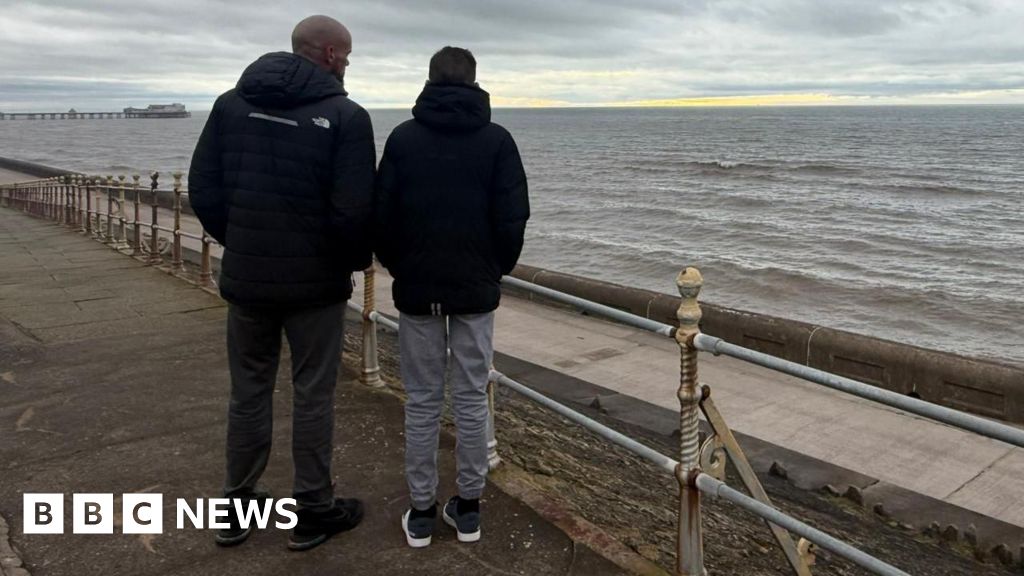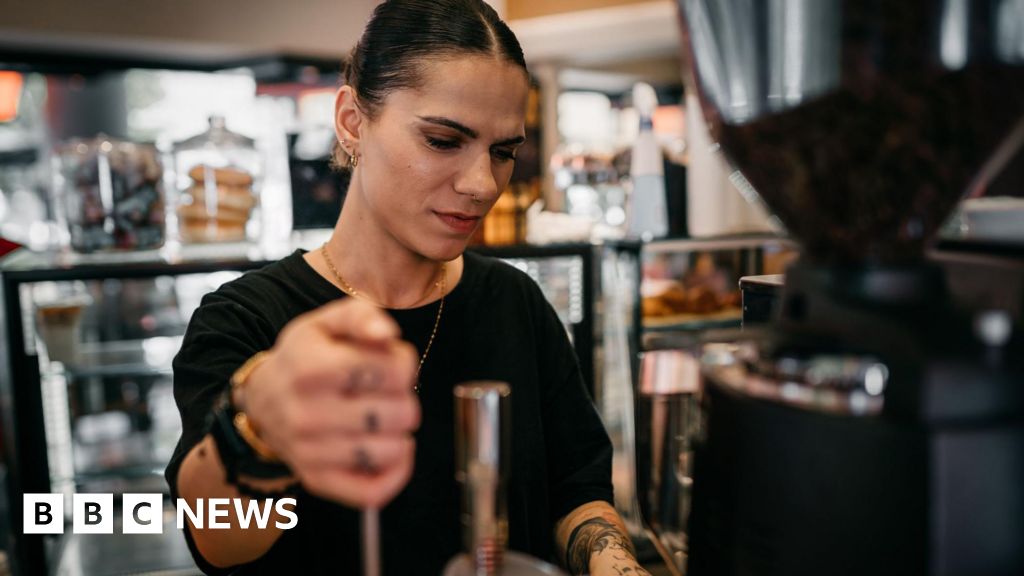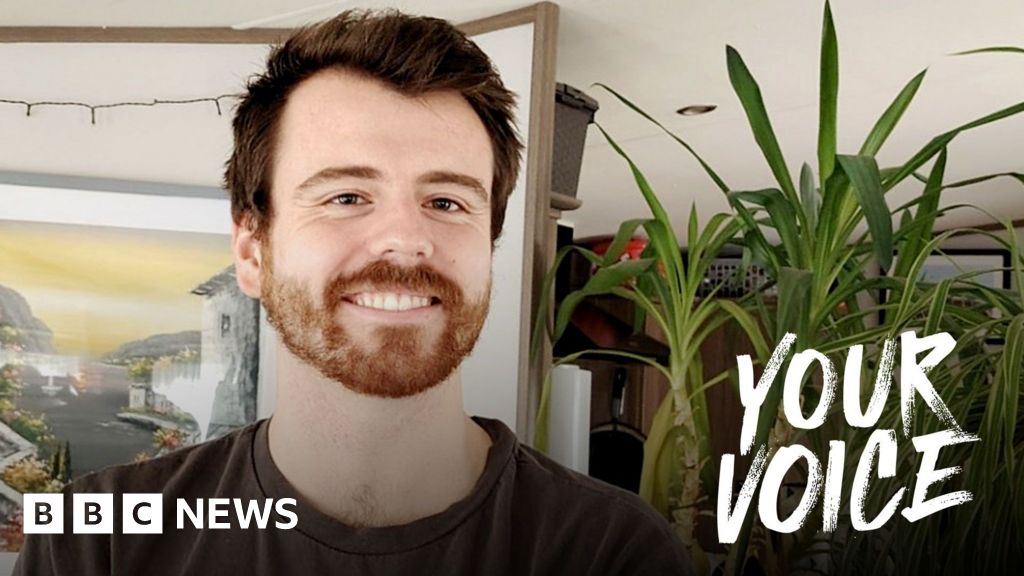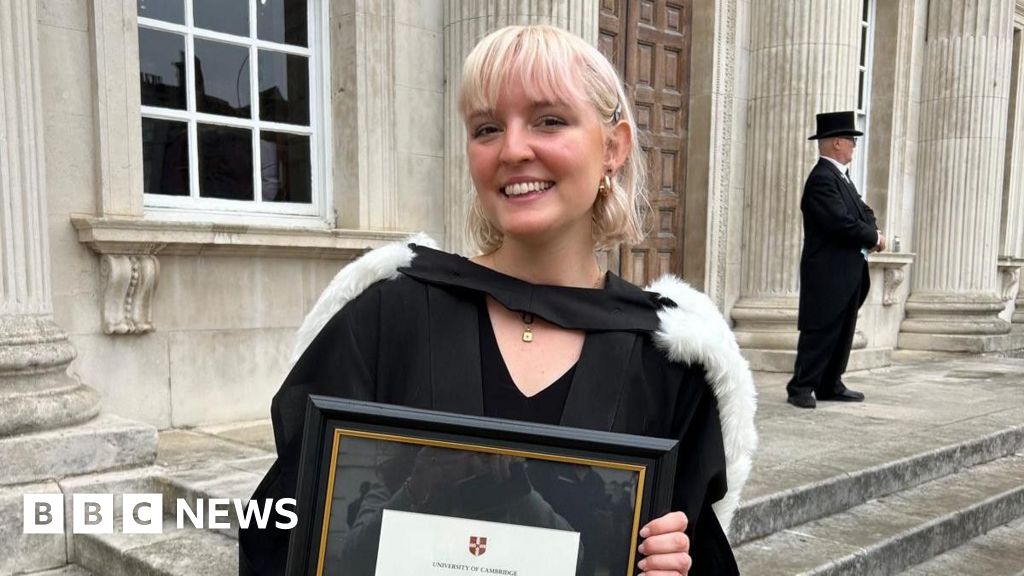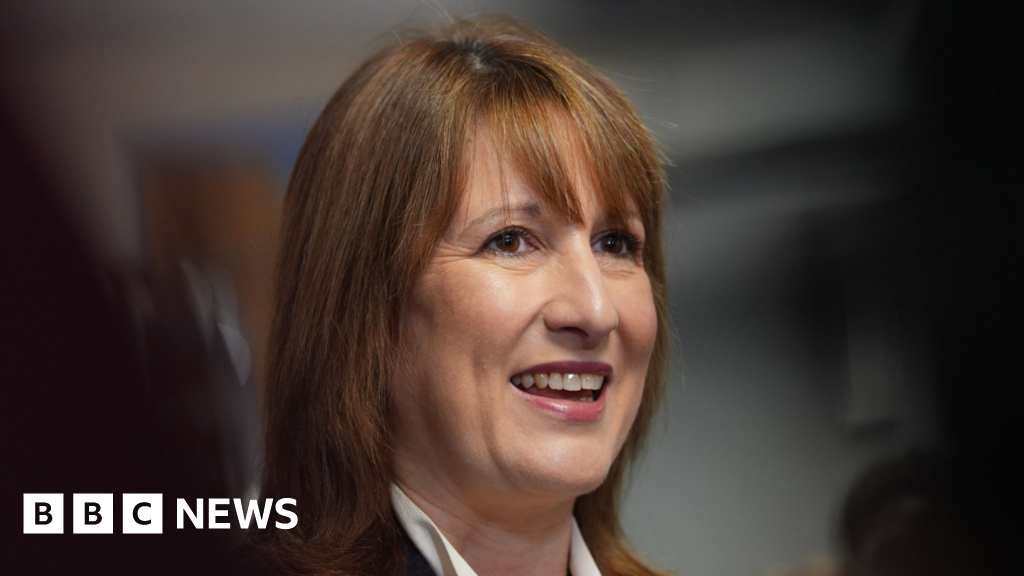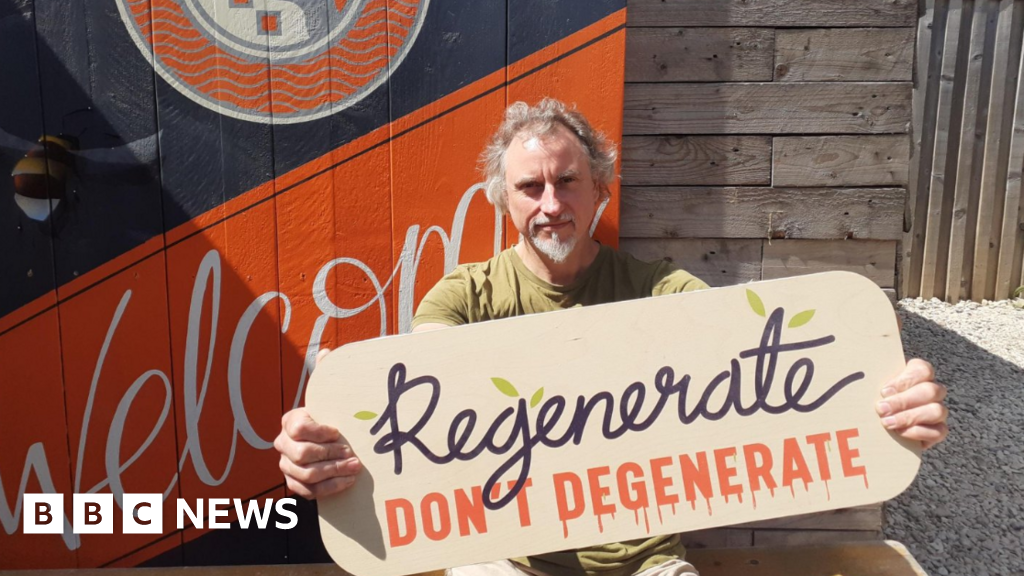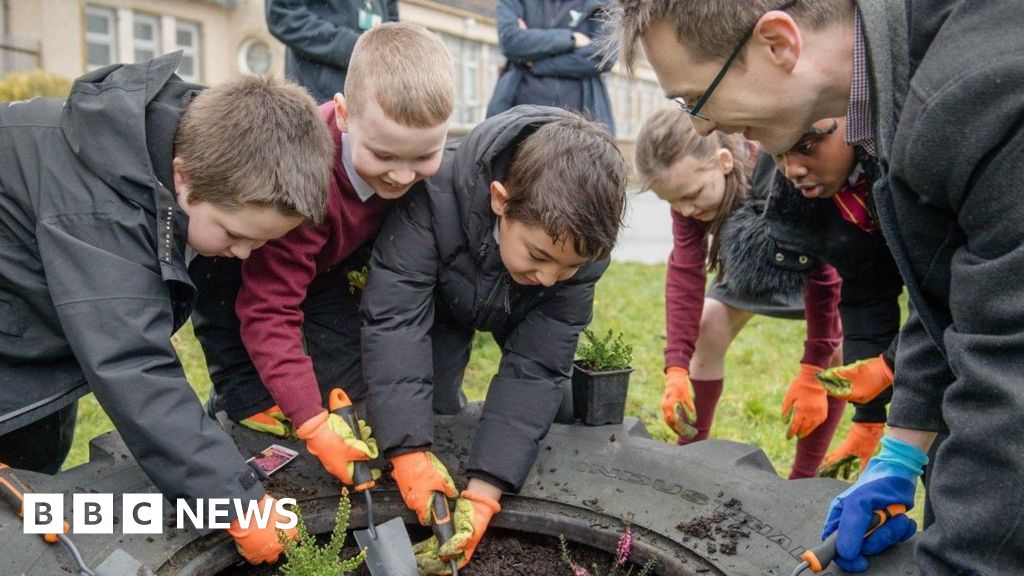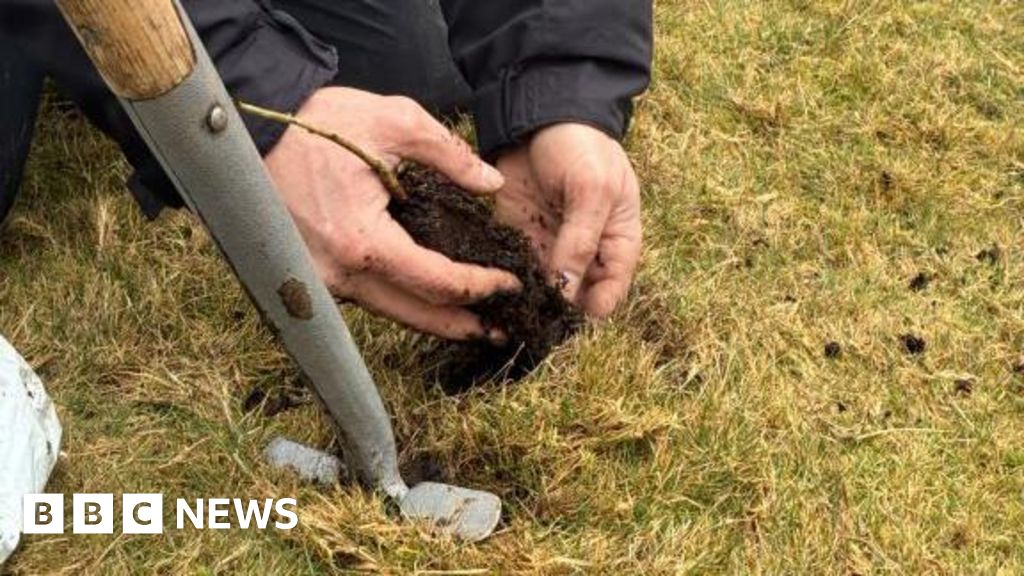
 BBC
BBCIn a gleaming laboratory in Edinburgh, robotic machines whirr and mix. The final product that they are creating will be a pine-smelling chemical that can be used as an ingredient in perfumes. But the starting point is very different: a brown, gloopy, fat mixture, recently fished out from below ground – fatbergs.
Fatbergs are the foul phenomenon found lurking in (and blocking up) sewers. The development of the technology used to perform this apparent alchemy is being described by some as a new industrial revolution.
This is the fast-moving field of bioengineering. The good news is that Britain is currently strong in the science compared with other countries.
It is potentially great news for the environment too because it can recycle waste and make things more sustainably. Plus the government is keen because it may mean new industries and new jobs.
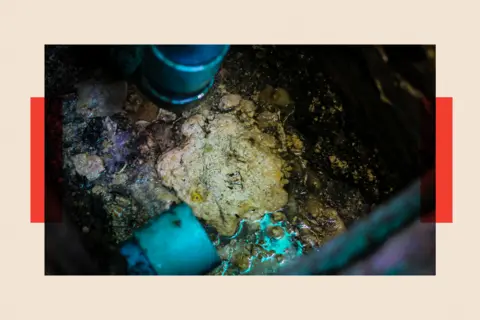 Getty Images
Getty ImagesBut the British lead has slipped away recently because of a lack of investment, poor regulation and the wrong policies. The question now is, can it be recovered?
And if it can, at what cost? Because some experts are concerned that certain potential risks are being overlooked amid the enthusiasm to reap the benefits – and to win back the lead.
A crazy idea ‘that works’
Prof Stephen Wallace from the University of Edinburgh is among those turning the fatbergs into perfumes. “It’s a crazy idea,” he admits to me, “but it works.”
Fatbergs are accumulated lumps of fat from cooking oils, toilet and other food waste that people put down their drains. Prof Wallace gets his from a company that specialises in fishing them out of sewers and turning them into biofuels. They arrive at the lab in a tube.
The first step is to sterilise the material in a steamer. Prof Wallace then adds the specially modified bacteria to the remnants of the fatberg. The bacteria have a short section of DNA inserted, to give the bacteria their particular properties.
The fatberg gradually disappears, as the bacteria eat it, producing the chemical with the pine-like smell – this can be used as an ingredient in perfumes.
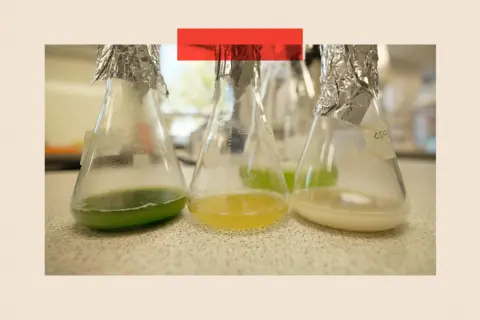
Prof Wallace says that while the UK has taken a lead role in establishing the technology, it now needs to show it can go to the next step. “We are at this nervous point where the core technology that enables a huge range of sustainable industrial technologies is established and we are now progressing to the stage of scaling up to manufacturing.
“But there is a challenge in the UK to create infrastructure… and progress to commercialisation at a rate that is comparable to investment in Europe and the US.”
Tech advances at break-neck speed
If the UK can scale up, the appetite for investment appears to be there. Prof Wallace is working with two perfume companies that are interested in the process because it is more sustainable than the method they currently use, which involves making the fragrance from chemicals extracted from fossil fuels.
But while the basic technology exists, it is advancing at break-neck speed, meaning the UK’s leading role is insecure.
One of Stephen’s colleagues, Dr Joanna Sadler, has created microbes that turn used plastic, that would otherwise damage the environment, into vanilla essence and other useful and expensive chemicals.
“Since I first published the work four or five years ago, the field has absolutely exploded, not just in the UK but across the world,” she tells me. “It’s an extremely fast-moving field.”
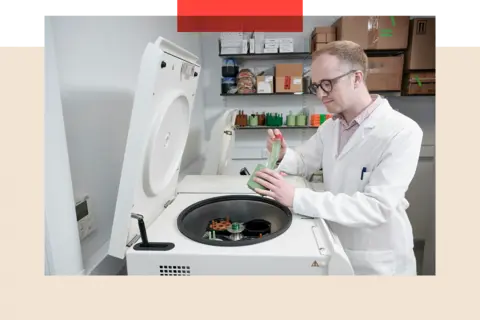
One member of the University of Edinburgh’s hub has created bugs that extract important metals from burnt-out batteries, which would otherwise leak noxious chemicals into landfill. Another is turning waste water from whisky distillation into a plant-based alternative to fish-oil health supplements.
The possibilities are endless, and innovation has accelerated because of the development of cheap and accurate ways of manipulating DNA. It means it is now much easier to harness and adapt the power of nature to create all sorts of things.
However all those possibilities require funding.
A national priority?
The technology was set as a national priority by the previous government in December 2023 with the publication of a policy document called the National Vision for Engineering Biology and an allocation of £2bn over 10 years. The Labour government has indicated that it too regards it as a priority but has made no firm spending commitment.
On the face of it, engineering biology could help Labour achieve two of its five big priorities in government: growth and sustainability. But at present the funding remains uncertain.
The chief scientific advisor Prof Angela McLean, whom the Prime Minister turns to for matters scientific, has been looking into this.
“We are looking for products like this handbag,” Prof McLean explained, while stroking a faux leather handbag made by one of the many new start-up engineering biology companies spinning out of university research.
Modern Synthesis based south London made the bag from material grown from a non-genetically engineered microbe.

“They will be much less polluting, much more sustainable than their current equivalents, as well as generate great jobs, good environment and prosperity,” she continues.
“Engineering biology is something the UK is really good at and the world is going to need. It is in its infancy and we need to keep on investing in it as a country.”
Losing out to Korea and the US
In the 20th Century, the UK led the way in the basic sciences of electronics, computing and the biosciences. But, with some notable exceptions, scientific excellence in these sectors was not translated into truly large world-leading businesses.
In all these cases, there was initial government enthusiasm and funding, but no follow-through. That meant that the science and ideas were bought up by mostly US companies, generating wealth and jobs overseas.
The fear that the UK is losing its way is highlighted in a new House of Lords report, which was out on the 14 January, that says that engineering biology risks going down the same path for exactly the same reasons.
It states that “other countries are beginning to overtake the UK, and we are at severe risk of losing the prospective benefits of a world-leading engineering biology sector”.
The report also says that there is a “small but closing window” to make some small policy tweaks that could make a huge difference, such as recommitting to the target set out in the National Vision for at least £2 billion of funding over the next decade.
Professor Susan Rosser, co-director of the Edinburgh Genome Foundry, told the Lords Science and Technology committee, which produced the report, “we were ahead of the game, but we have lost that leadership because of substantial investments in the US and Korea”.
She said: “We are losing trained people overseas. People from Edinburgh have moved to Singapore, the States, Germany and Austria.
“If this is genuinely going to be a key part of our economy, we need the skill set trained, and as soon as possible.”
Brain drain
Dr Carolina Grandellis, a biofoundry manager at the Earlham Institute research park in Norwich, added that it was hard to replenish the brain drain by attracting scientists from overseas because of a tightening of the visa system by both the previous and current government.
“The government intends to increase restrictions on legal skilled migration. That will have a cost for our field.”
According to Baroness Brown of Cambridge, who chairs the Lords committee, the heart of the problem is that there is no clear plan to increase the number of skilled scientists or to have the right policies and regulations in place to enable engineering biology to flourish in the UK.
“All too often we hear that when companies reach a certain size, they move abroad for better investment and development prospects, taking most of the economic benefit with them,” she says. “This requires urgent action”.
 Edinburgh Genome Foundry, University of Edinburgh
Edinburgh Genome Foundry, University of EdinburghAnother issue is that the UK biofoundries, like the one at Edinburgh University, are not properly funded, according to Prof Paul Freemont, who is a co-director of a biofoundry at Imperial College, London.
“The scale of investment in biofoundries internationally is enormous. In Korea, it just announced $100m (£82m) for a K-Biofoundry. In Shenzhen in China, about $750m (£614m) has gone into a building in which each floor [studies] an organism.
“Our biofoundry in London had £7m of public investment in infrastructure and we have had no funding for staff. We are constantly scrabbling for cash”.
Not all funding can come from government. But the Lords’ report found that enough private investment was not forthcoming either. Unlike in the US, UK investors expect returns in a few years, rather than the tens of years that innovative companies need for their ideas to really start making money.
‘Living pollution’ that could spread
A further barrier for the field is its regulation by government, especially for applications for producing novel foods, according to Will Milligan CEO of Extracellular, which provides products to firms making lab-grown meat.
“Singapore, on the other hand, has a very clear framework for the approval process in bringing products to market, and the recommended timelines are about half what they are in the UK.”
In response to criticisms, the government has set up a body to cut through the red tape, the Regulatory Innovation Office.
But “streamlining does mean deregulation, in many circumstances”, argues Dr Helen Wallace, director of the campaign group Gene Watch. She worries that the risks of engineering biology are being overlooked by the government in its enthusiasm to reap the claimed benefits.
Many applications of the technology involve creating entirely new organisms which are contained inside large vats in the production process. Even if they were to escape, they are unlikely to survive as they have been engineered to thrive in the very specific, artificial conditions they were designed for.
But Dr Wallace is concerned about some applications that are designed to be released into the environment. “There is one in the US which is made to survive and reproduce in the soil to boost nitrogen levels, which is very worrying because even very small changes in their DNA could make them more harmful to people, animals and plants.
“This could create a new kind of living pollution that could spread in rivers, the sea, the air, in rain and you would not be able to reverse any adverse consequences”.
Longer term risks
Scientists and industrialists agree that without public trust, this shining new industry is going nowhere. And to win trust, the advocates of engineering biology must be open and honest about the risks.
More worrisome is that progress in bioengineering could one day lead to the creation of dangerous superbugs that could spread disease or create environmental problems by disrupting delicately balanced ecosystems.

A group of 38 leading scientists recently expressed concern about the creation of “mirror life”, which would be artificially created organisms whose DNA is the mirror image of their naturally occurring counterparts.
Writing in the journal Science, they said that while the capability to create mirror life is likely at least a decade away and would require large investments and major technical advances, these mirror organisms could pose serious risks and rip through the immune systems of plants and animals. The scientists have called for a moratorium on their creation until more is known about them and what steps can be taken to minimise risks.
Without action to reduce the risks, developments in biotechnology could increase the risk of bioterrorism in the future
Government and manufacturers think that there are considerable environmental and economic benefits to this technology. But if the public won’t accept it, there’s no point to all this increased investment: it won’t be used; no one will buy the products. And there are real risks: scientists and campaigners want the public to be fully informed, in an open and transparent way.
Prof Freemont admits that in their enthusiasm for the good that engineering biology can bring. “We’ve taken our eye off the ball a little bit in engaging with the public.
“The sector needs to ensure that the general consumer and citizen can begin to understand this technology”.
Top picture credit: Keam George Agency
BBC InDepth is the new home on the website and app for the best analysis and expertise from our top journalists. Under a distinctive new brand, we’ll bring you fresh perspectives that challenge assumptions, and deep reporting on the biggest issues to help you make sense of a complex world. And we’ll be showcasing thought-provoking content from across BBC Sounds and iPlayer too. We’re starting small but thinking big, and we want to know what you think – you can send us your feedback by clicking on the button below.










